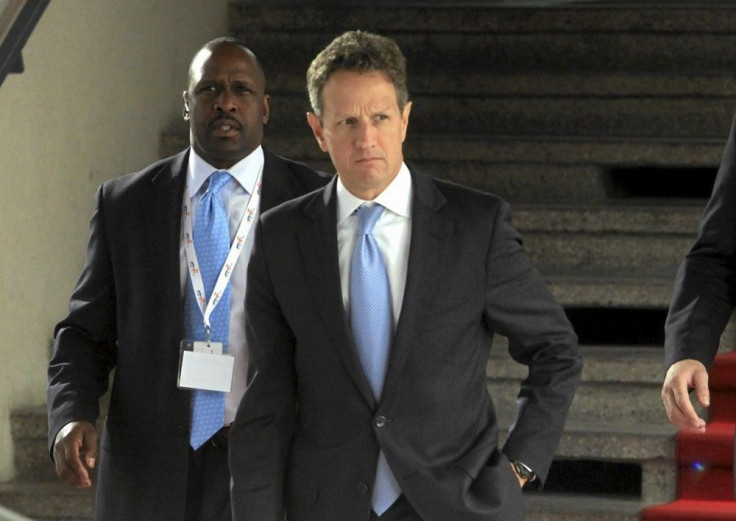Geithner Suggests Europe Consider Leveraging Bailout Fund to Address Banking Crisis
ANALYSIS

A United States / European Union rift is the last thing the global economy needs as public officials and business leaders attempt to prevent another wave of the financial crisis, but as of now the two regions are not 100 percent in-sync on policy.
U.S. Treasury Secretary Timothy Geithner Friday urged EU finance ministers to leverage their bailout fund to better tackle the banking crisis/debt crisis, but there was no agreement on what steps should be taken at the end of the day's session, Reuters reported.
The United States used a similar model in 2008 when Geithner was still president of the New York Federal Reserve in the TALF program, which help re-liquefy credit markets and restore credit market calm.
Under that program, the U.S. Treasury made $20 billion in seed money available to the New York Fed, which then expanded it into $200 billion to finance private purchases of collateralized debt obligations -- securities backed by auto loans, credit cards, and business debt.
Sees Need For Bigger Fund
In a 30-minute meeting Friday with eurozone ministers, Geithner pressed for the €440 billion or $660 billion European Financial Stability Facility (EFSF) to be increased to give greater capacity to combat the problems relating to debt-burden countries, including Greece, Portugal, Italy and Spain, Reuters reported Friday.
But ministers were resistant to Washington telling the 17-country eurozone and its finance chiefs what they should do.
He conveyed dramatically that we need to commit money to avoid bringing the system into difficulty, Austria's Finance Minister Maria Fekter told reporters after the meeting. I found it peculiar that even though the Americans have significantly worse fundamental data than the eurozone, that they tell us what we should do and when we make a suggestion ... that they say no straight away.
Fekter said there had been particular disagreement over suggestions that Europe should commit more money to fighting the crisis. When German Finance Minister Wolfgang Schaeuble explained that would not go down well with taxpayers and that the only way to fund it would be a financial transaction tax, Geithner ruled out that option.
Instead, the U.S. wants new bank capital requirements and other rule changes to be put in place globally, on sensible terms, that make the system more resilient in the future, Geithner told a financial forum Friday in Wroclaw, Poland, after talks with euro-area finance ministers, Bloomberg News reported.
Those regulatory changes shouldn't add to doubt, add to headwinds of growth in the near term or create a huge new wave for options of arbitrage across the major financial centers, Geithner said.
Global regulators are negotiating the timetable and final structure of financial-rule changes agreed to by the G-20.Their goal is to prevent a third wave of the crisis, following the Lehman Brothers' and Greece waves. The U.S. has expressed concern that planned E.U. reforms to the over-the-counter derivatives market could leave regulatory loopholes.
French President Nicolas Sarkozy and German Chancellor Angela Merkel want the E.U. to approve its own transaction tax, irrespective of whether other regions follow suit. The European Commission is expected to debate the tax in October.
Monetary/Economic Analysis: It sounds like Geithner may have done a little too much talking and not enough listening at the Europe Finance Ministers' meeting Friday, and that may have been the source of the rift, but we'll reserve final judgment on the meeting's accomplishments until after E.U. leaders have determined what's the next, prudent step in the intervention process.
A TALF or TALF-esque program implemented by Europe is a credible one, but one can not expect the E.U. to discuss an increase or modification in its bailout fund with a non-member of the eurozone attending.
Second, the United States is a co-equal neighbor in these negotiations -- not a superpower neighbor -- due to the U.S.'s huge budget deficit and national debt. In other words, the best the U.S. can do is suggest various intervention options -- Europe alone will determine the intervention's shape.
The hope is that is E.U. leaders, via the EFSF, a TALF structure, or, if the credit crunch worsens, selective de-coupling of countries who can not borrow at low rates in the private sector, provide a mechanism strong enough to address future financial problem areas and to check contagion.
© Copyright IBTimes 2025. All rights reserved.





















